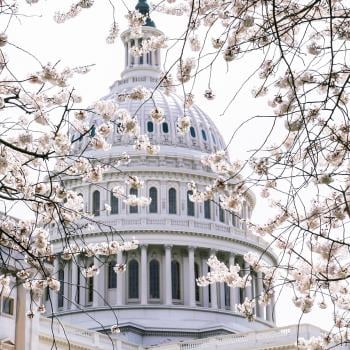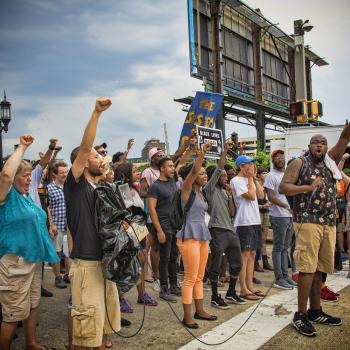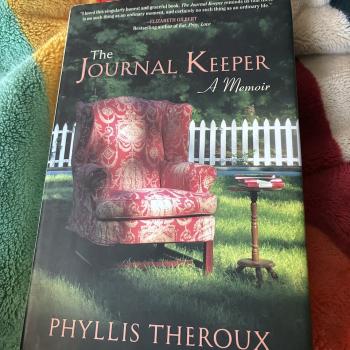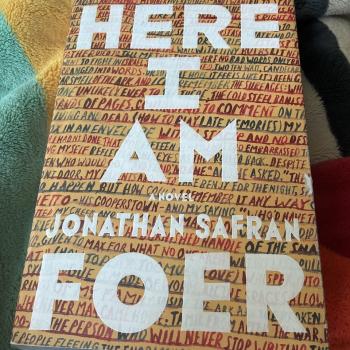As you may already know, we’re a family of readers. I’m a reader. My husband’s a reader (although he’s sure to give equal playing time to football, basketball and baseball, depending on the season). And our sons are becoming readers, each at their own level, sometimes by themselves and oftentimes by listening to Mama and Dada read.
While James still relishes in reading picture books to the boys, I get super excited to dive into chapter books with the two of them. After all, at ages six and eight, they’re finally at a place of being able to understand words read aloud, even if they can’t see an accompanying picture.
Earlier this year, we finished reading all seven books in the Harry Potter series. The Season of Styx Malone and Bud, Not Buddy were two of our favorites this past summer and fall, and as of last night, we only have one book to go in the beloved Chronicles of Narnia series.
For me, it’s been an interesting ride entering back into the Narnian stories. I remember watching the movies and reading some (but, I believe) not all of the seven books. Now, as someone who loves God something fierce but no longer finds her home in the evangelical church of my youth and young adult self, I read the books through a new, unfiltered lens.
And The Magician’s Nephew sparked a desperate renewal of soul as I read out loud to my boys. I mean, just take this quote, spoken from all the creatures in Narnia, from “all the beasts and birds in their different voices, low or high or thick or clear,” who replied:

Wherever we find ourselves on the spectrum of belief, there is a knowing that occurs when we encounter God. To some, God appears in strobe lights and disco balls for Jesus, and for others, God is made real through incense and candles, forgotten hymns and prayers that have been prayed for thousands of years, by thousands of tongues.
Too often, divisions originally laid out within the Christian tradition – of everything from interpretation of scripture to worship preferences, just to name two – lead not to seeking love or unity across the spectrum of tradition, but instead to further divide.
Instead of collectively saying, “Hail, Aslan” in one voice, we hear and obey through our own lens of what we believe Jesus would have us do. But our beliefs of what Jesus would have done are different.
We believe Jesus would vote blue.
We believe Jesus would vote red.
We believe Jesus cradles unborn babies, so we therefore can’t vote any other way.
We believe Jesus stands beside those on death row, so being “pro-life” expands to new ways of voting.
We believe Jesus sides with those who stand for him, who perhaps proclaim his name the loudest.
We believe Jesus sits with the marginalized and the oppressed, with voices that have traditionally been quieted and suppressed by those who hold the power.
And to this end, it’s easy to see how this turns into an argument of right and wrong, of evangelical versus Protestant, of conservative versus progressive. And from my little corner of the Internet, it’s also then easy to see how we become immune from hearing and seeing one another altogether.
Of course, some might say that this is the whole point of social media.
If you’ve seen The Social Dilemma on Netflix, you know that Facebook, Twitter and Instagram (just to name a few), effectively program users to only receive information from those who think, act and believe like we do.
Instead of seeking to listen to one another – and even, I’d argue, to continue to allow ourselves to disagree with one another after listening to another person – we further hole up with those who agree with us. If Facebook labels me progressive, then chances are that I will not see in my feed posts that support our current President, for example. And if, by some chance, the algorithms that be accidentally slip into my feed a shared link to a QAnon conspiracy theory, I can continue to control the negative situation by muting that “friend” or unfriending them altogether. (Facebook, of course, further shows that they care for the user by asking us to explain why we didn’t like that content, all of which serves to correct an algorithm gone wrong).
Additionally, most of the time we aren’t actually digging into the words and actions of Jesus, but we’re digging into the words and actions of our pastors, our preachers and our denominations, who tell us to vote along party lines, because we’re told that it’s what Jesus would have done.
We’re not taking seriously the actual words of Jesus. We’re not wrestling with the eight Beatitudes Jesus preached in the Sermon on the Mount, but we’re instead plucking a handful of verses from across the vast spectrum of sixty-six books and trying to apply the circumstances of a two thousand-year old people and a place to unique American circumstances today.
To be certain, I do believe that leaning into the words of Jesus shows us how to live (and even, how to vote when political elections come our way and how to center the most vulnerable in conversations, when navigating conflict, as Megan Westra writes in Born Again and Again). If we identify as white, it means learning how to listen to our brothers and sisters of color and to those we’ve silenced through power structures that continue to benefit those who look like us. If we identify as straight, it means pressing in to hear the stories of our LGBTQ+ family and seeking to be the fleshy hands and feet of Jesus to a people who have been outright rejected by those who claim a religion of love. And for all of us, the words of Jesus teach us how to listen, just as they teach us how to live – even if it looks different from the church of our youth or from the way we voted four, eight, twelve years ago too.
At the end of the day, this is where I find myself begging for a bit of unity in an ever-divided world. This is where I seek to hear the “we,” like the creatures of Narnia proclaimed to Aslan: “We hear and obey. We are awake. We love. We think. We speak. We know.”
And this we repeat, over and over again, until it reigns true.
—
Your thoughts? Books, Narnia, The Social Dilemma, the current divide in our country? Leave a comment and enter into the conversation!
*Post contains Bookshop affiliate links













